Topics
- active learning (18)
- research assignments (6)
- libraries (1)
- literature-based learning (2)
- multimedia (5)
- museums (6)
- object learning (7)
- online learning (5)
- peer instruction (10)
- storytelling (2)
- learning management system (2)
- syllabus design (3)
- teaching empathy (3)
- teaching fellows (1)
- lecture (3)
- learning goals (8)
- assessment (6)
- data (3)
- backward design (3)
- blended approaches (12)
- case-based learning (8)
- classroom contracts (7)
- classrooms and space (3)
- collaborative learning (27)
- community events (1)
- course transformation (7)
- devices (3)
- learning by making (5)
- discussion (24)
- engaged scholarship (4)
- experiential learning (16)
- feedback (18)
- group work (8)
- guest speakers (7)
- interdisciplinary (6)
- leadership (3)
Send feedback
Subscribe
Copyright © 2024 The President and Fellows of Harvard College | Privacy | Accessibility | Digital Accessibility | Report Copyright Infringement

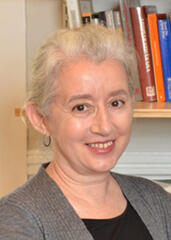 Janet Gyatso, Hershey Professor of Buddhist Studies, teaches seminars on Buddhist and Tibetan intellectual history and literature at Harvard Divinity School and in the Faculty of Arts and Sciences. Gyatso aims to “cultivate an experimental and convivial atmosphere in the classroom” that encourages students to draw connections between the past and present, interrogate a diverse set of primary sources, and create a community that allows students to feel comfortable taking intellectual risks and asking questions. This is particularly important in her field, which is often unfamiliar and engages with historical contexts that may seem distant from contemporary issues. Gyatso inspires her students to draw connections between the literature, philosophy, religion, and arts of the past and contemporary conversations on topics ranging from identity to gender to climate. By encouraging students to ask questions and find links between past and present, Gyatso is able to help them find an entryway into otherwise unfamiliar topics.
Janet Gyatso, Hershey Professor of Buddhist Studies, teaches seminars on Buddhist and Tibetan intellectual history and literature at Harvard Divinity School and in the Faculty of Arts and Sciences. Gyatso aims to “cultivate an experimental and convivial atmosphere in the classroom” that encourages students to draw connections between the past and present, interrogate a diverse set of primary sources, and create a community that allows students to feel comfortable taking intellectual risks and asking questions. This is particularly important in her field, which is often unfamiliar and engages with historical contexts that may seem distant from contemporary issues. Gyatso inspires her students to draw connections between the literature, philosophy, religion, and arts of the past and contemporary conversations on topics ranging from identity to gender to climate. By encouraging students to ask questions and find links between past and present, Gyatso is able to help them find an entryway into otherwise unfamiliar topics.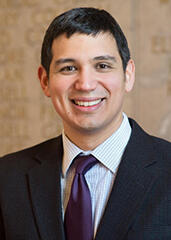 Matthew Potts, Plummer Professor of Christian Morals and the Pusey Minister in the Memorial Church, teaches
Matthew Potts, Plummer Professor of Christian Morals and the Pusey Minister in the Memorial Church, teaches 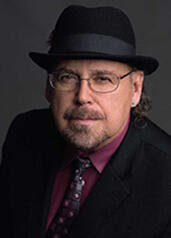 As an historian of religions, Davíd Carrasco, Neil L. Rudenstine Professor for the Study of Latin America, conducts his courses through an ensemble approach, which enables students to learn about complex evidence from a variety of approaches, sources and mediums. This approach contains four parts: (1) using an interdisciplinary intellectual method, (2) incorporating a variety of sources, including artifacts, texts, films, and museum exhibitions; (3) expanding disciplinary perspectives through team teaching and visiting speakers; and (4) organizing diverse student experiences and inviting a range of responses. One example of the ensemble in action is Carrasco’s annual collaboration with the Peabody Museum on their Día de los Muertos exhibition as part of his Gen Ed course,
As an historian of religions, Davíd Carrasco, Neil L. Rudenstine Professor for the Study of Latin America, conducts his courses through an ensemble approach, which enables students to learn about complex evidence from a variety of approaches, sources and mediums. This approach contains four parts: (1) using an interdisciplinary intellectual method, (2) incorporating a variety of sources, including artifacts, texts, films, and museum exhibitions; (3) expanding disciplinary perspectives through team teaching and visiting speakers; and (4) organizing diverse student experiences and inviting a range of responses. One example of the ensemble in action is Carrasco’s annual collaboration with the Peabody Museum on their Día de los Muertos exhibition as part of his Gen Ed course, 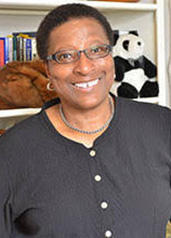 Cheryl Giles, Francis Greenwood Peabody Senior Lecturer in Pastoral Care and Counseling, shares her own experiences, missteps, and successes to demonstrate self-awareness for students in her course
Cheryl Giles, Francis Greenwood Peabody Senior Lecturer in Pastoral Care and Counseling, shares her own experiences, missteps, and successes to demonstrate self-awareness for students in her course 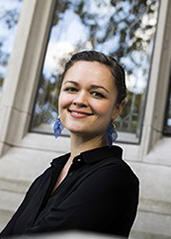 When enrollment for seminar
When enrollment for seminar 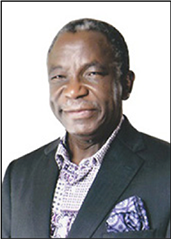 Jacob K. Olupona, Professor of African and African American Studies and Professor of African Religious Traditions, collaborated with students from Harvard Graduate School of Education in 2013 to develop a team-taught course on entrepreneurship that would appeal to learners across the University. “They felt entrepreneurship was important and central to what people are doing.”
Jacob K. Olupona, Professor of African and African American Studies and Professor of African Religious Traditions, collaborated with students from Harvard Graduate School of Education in 2013 to develop a team-taught course on entrepreneurship that would appeal to learners across the University. “They felt entrepreneurship was important and central to what people are doing.” 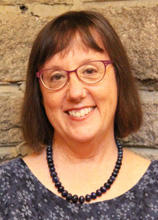
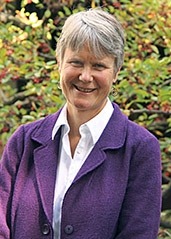 Diane Moore, Senior Lecturer in Religious Studies and Education, collaborated with HDS and FAS colleagues to produce a six-module, online course offering through
Diane Moore, Senior Lecturer in Religious Studies and Education, collaborated with HDS and FAS colleagues to produce a six-module, online course offering through 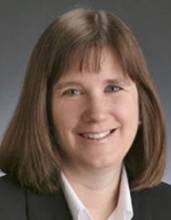 Catherine Brekus, Charles Warren Professor of the History of Religion in America, worked with Schlesinger Research Librarian Amanda Strauss this semester to design a session for her
Catherine Brekus, Charles Warren Professor of the History of Religion in America, worked with Schlesinger Research Librarian Amanda Strauss this semester to design a session for her